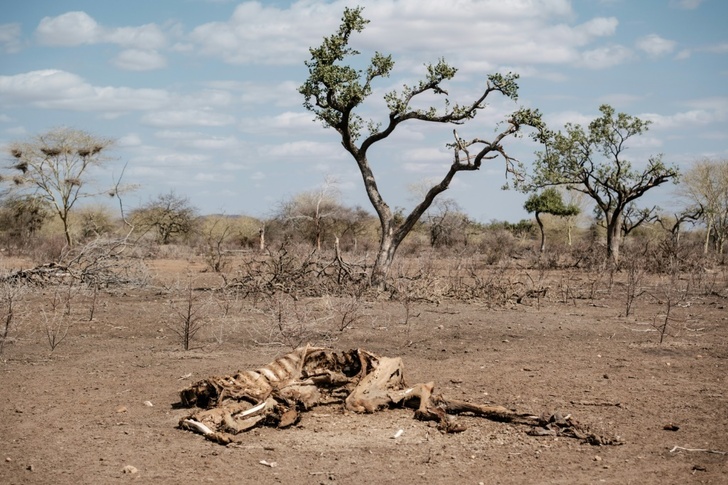A Kenyan lawyer said Friday he has filed a court challenge to a decision by the new government to lift a decade-old ban on genetically modified crops.
Paul Mwangi wants the High Court to set aside last week's cabinet order allowing the open cultivation and importation of GM crops to Kenya, which is currently in the grip of its worst drought in four decades.
"The hasty removal of all regulatory protocols... is neither rational nor reasonable," Mwangi said in court documents dated October 13.
The government of newly elected President William Ruto last week "effectively" lifted the 2012 ban saying it was in response to dwindling food security.
In his lawsuit, Mwangi argues that the move was unconstitutional as there were concerns over the safety of GM crops and that it also risked driving small-scale farmers out of business.
"It derogates the rights of peasants and people working in rural areas of access to adequate food that is produced through ecologically sound and sustainable methods," he said.
The government has defended its decision, saying it would enable Kenya to have disease-resistant crops and improve yields.
Mwangi -- a counsel for defeated presidential candidate Raila Odinga -- told AFP on Friday he was waiting to hear from the court when the case will be heard.
Kenya, like many other African nations, banned GM crops over health and safety concerns and to protect smallholder farms, which account for the vast majority of rural agricultural producers in the country.
However, Kenya had faced criticism over the ban including from the United States which is a major producer of GM crops.
Activists and agriculture lobby groups last week protested over the lifting of the ban, saying it opened the market to US farmers using sophisticated technologies and highly subsidised farming and threatened the livelihoods of small-scale farmers.
Agriculture is the backbone of Kenya's economy, contributing over 20 percent to gross domestic product.
Ruto, a former chicken seller turned millionaire businessman, was elected in August on a promise to turn around Kenya's stuttering economy and tackle a cost of living crisis.
Within weeks of taking office in September, he halved the price of fertilisers to improve crop yields in the midst of the drought that has affected 23 of 47 counties.
Four consecutive rainy seasons have failed in Kenya, Somalia and Ethiopia, an unprecedented climatic event that has pushed millions across the Horn of Africa into extreme hunger.
ho/txw/bp
© Agence France-Presse
Your content is great. However, if any of the content contained herein violates any rights of yours, including those of copyright, please contact us immediately by e-mail at media[@]kissrpr.com.
Source: Story.KISSPR.com

